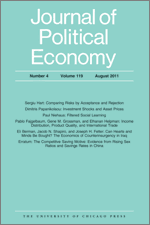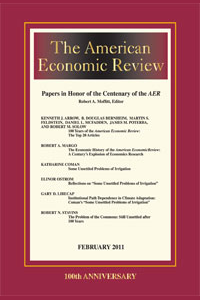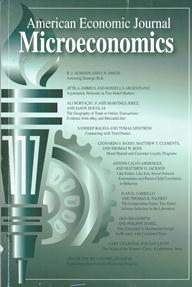
Arrondel, L., Calvo-Pardo, H., Giannitsarou, C. and Haliassos, M.
Informative Social Interactions
Journal of Economic Behavior and Organization
Vol. 203 pp. 246-263 (2022)
Abstract: Household finances are confidential and discussions are limited to a subset of peers. We collect novel representative survey data to examine separately whether interactions with inner and outer social circles influence return perceptions, expectations, and exposure to a widely known financial instrument in a developed economy with multiple information sources. We find that a respondent's connectedness, proxied by perceived prevalence of information or participation in the small financial circle, improves expectation accuracy indirectly, through boosting accuracy of perceived past returns; and influences stock participation and exposure not only by influencing expectations, but also directly.
Keywords: Household finance, subjective expectations, peer effects, information networks, portfolio choice
JEL Codes: G50, G11, E21
Author links: Chryssi Giannitsarou
Publisher's Link: https://doi.org/10.1016/j.jebo.2022.09.006
Keynes Fund Project(s):
Financial Decisions: The Role of Information Through Social Networks ** (JHLQ)
Cambridge Working Paper in Economics Version of Paper: Informative Social Interactions, Arrondel, L., Calvo-Pardo, H., Giannitsarou, C., Haliassos, M., (2019)



